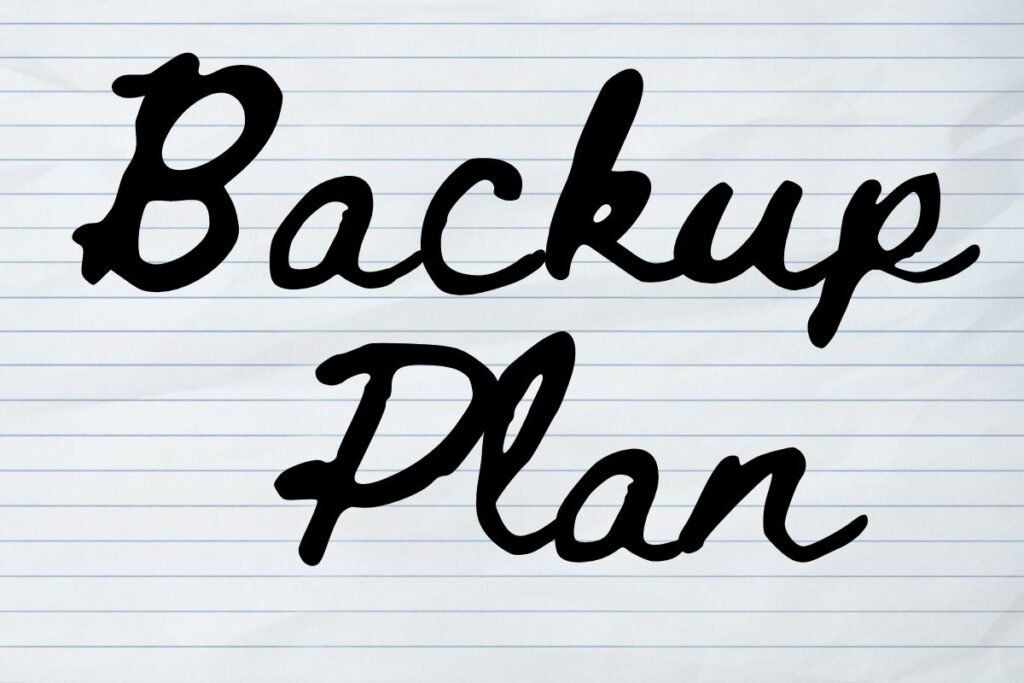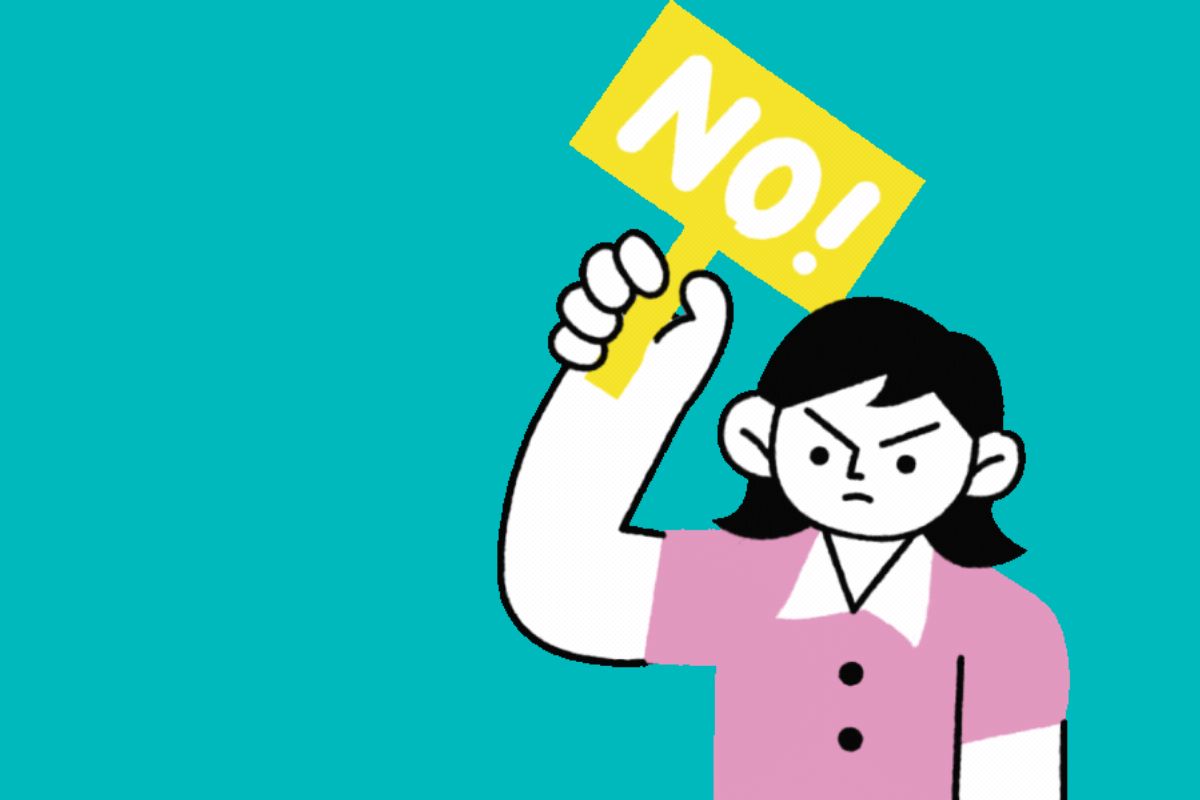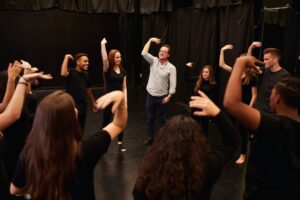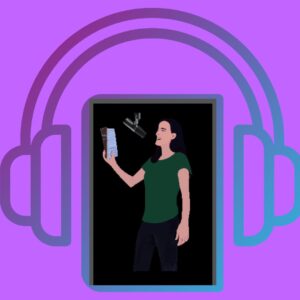Listen to this post on Youtube: https://youtu.be/YMIRkGBpolg
When I was in college, one of my dreams was to be accepted into the University’s twelve voice vocal jazz ensemble. The chances were slim. I was a mezzo-soprano and there were only two mezzo-soprano spots. I wasn’t even sure whether or not there might be returning mezzo students auditioning. I did everything I could to achieve my dream, which included asking the professor for a vocal coach recommendation, and taking voice lessons, and practicing my audition pieces and vocal improvisation every day the summer before the audition. I knew that as much as I did the work, there was still a good chance that I could be denied, but doing the work was one of the things I could control, so I was diligent. I also looked for a backup plan and I found one. A local community college had a vocal jazz adult continuing education class that was open to everyone at low cost. It would have meant bussing across town one night per week, but it was worth it to me, since my dream went further than just having the prestige of being part of an elite group. I really wanted to sing jazz music with other people. In the end, I was accepted into the group at my University, and I was ecstatic. It was, in fact, my last opportunity to sing in my school’s vocal jazz ensemble. I was a senior, and I had actually been auditioning every year for my schools’ jazz choirs since I was a freshman in high school. I had heard “no” a total of six times. The seventh time was different because I had a backup plan. This time, I knew that either way, I would achieve my goal. I felt much less pressure during the audition, which for me, made all the difference. (Well, not all the difference. There was still some luck involved). I have kept this lesson close to me to this day.

I often hear people say that the word “no” actually means “not right now”. I’ve found this to be true numerous times. I didn’t make it into my school’s music program the first time I auditioned, which is why I ended up a degree in drama, as well as one in music. I applied for jobs at companies that turned me down, only to hire me a few years later when I had more experience. I had those experiences because I stuck to my motto: “If you can’t do something, do it anyway”. Just because I didn’t get hired by a high profile company to do the thing I wanted to do, didn’t mean I couldn’t still do the thing. I interviewed for a job as a choreographer and dance instructor at Club Med, an all inclusive vacation resort, when I was in my twenties. I didn’t get the job. It’s not a job that exists at most vacation resorts, but I made other opportunities to teach and choreograph, both as a volunteer, and as a freelancer. I also applied for positions as an activities associate at vacation resorts, and offered my skills in dance instruction as part of the package. In fact, I made it a condition of my employment when I was offered a position at a time share. A few years later, there was another opportunity for a choreographer at Club Med. By then I was much harder to deny, having done a very similar job somewhere else.
Being flexible about who I work for has helped me numerous times in getting dream jobs. I wanted to work as an entertainment host on a cruise ship, so I made a list of every cruise line and searched their websites to find out how to apply for a job. Out of about ten companies, I only got one response. I only needed the one. I worked for Royal Caribbean for five years as a result. I auditioned for Walt Disney World multiple times for different roles in entertainment until I landed a position that utilized my particular skill set and body type.
Many people forget about the “A” in “SMART goals”. (Specific, Measured, Achievable, Realistic, and Time-bound). Achievable turns a dream into a goal, and means that it’s up to the person achieving the goal and not up to the gatekeeper. You can have a goal of sending your resume to a particular company, but have a dream of actually getting hired by them. For most performing arts jobs, there are many volunteer alternatives. For audiobook narrators, there are volunteer organizations for reading to the blind and dyslexic, and there are hundreds of great classic books in the public domain that can be produced as audiobooks. I have done both when I have found myself out of work, and it keeps my skills up while helping me continue to build my portfolio. It’s also a great test for myself to make sure I enjoy my career in audiobook narration enough to do it for free, and in a few cases, the small income I’ve made from the public domain books has helped me to pay my bills when in a pinch.
Sometimes ego can prevent performers from doing volunteer work, or fear that they’re lowering their standards can make them reluctant to take on a a passion project without guaranteed pay. It’s important in these cases to choose the right projects and not work for people who are going to exploit you. (read my blog titled “WORKING FOR FREE IS FINE AS LONG AS YOU ARE WORKING FOR YOURSELF).
So have a backup plan that you are excited about, and that helps you achieve the same goal in case you are denied, and focus on the things you can control, like working on your skills, and sending your resume to the person, or to multiple people, doing the hiring. If you do get “no” for an answer, go to plan B, keep working on your skills, and try, try again.
Thanks for reading!
Rebecca H. Lee
Visit my website at becksvoice.com!
Follow me on social media!
https://www.linkedin.com/in/rebecca-h-lee-audiobook-narrator
https://www.youtube.com/@RebeccaHLee
https://www.instagram.com/beckcentric
https://www.facebook.com/beckcentric
https://www.tiktok.com/@beckcentric



